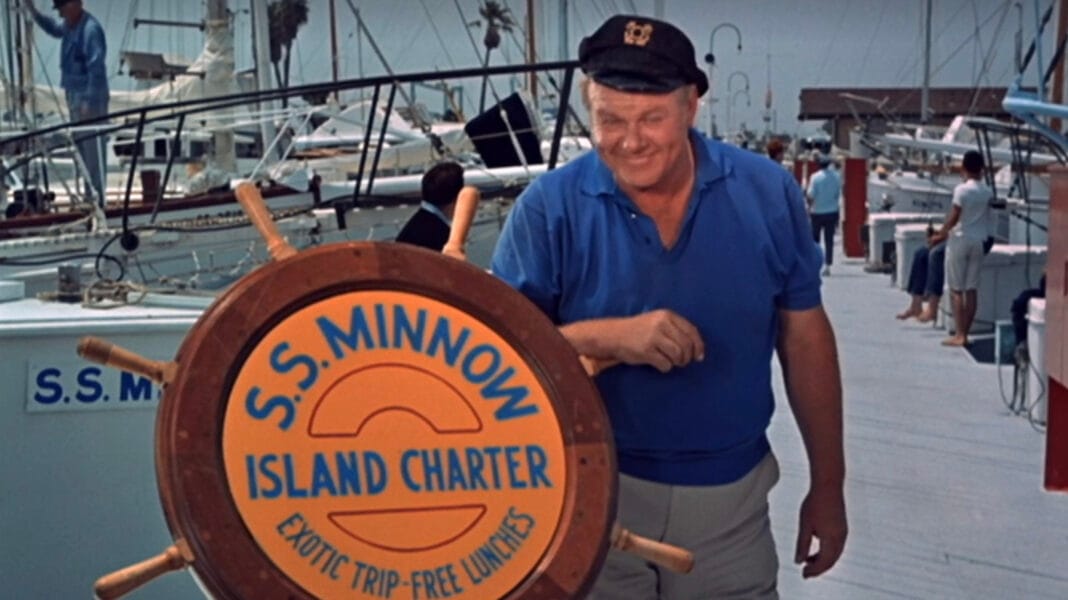The Story Behind the Naming of S.S. Minnow on Gilligan’s Island
Television history is often filled with intriguing tales, and one such story revolves around the naming of the doomed vessel on the beloved sitcom “Gilligan’s Island.” Created by Sherwood Schwartz, the show gained immense popularity, but its origins are tied to a controversial figure in the television industry – Newton Minow. Let’s delve into the fascinating narrative behind the S.S. Minnow and its connection to the FCC Chairman.
In a speech that reverberated through the industry, Newton Minow famously criticized television networks for creating a “vast wasteland” of programming. He urged networks to strive for higher quality content, leading to a shift in the television landscape. However, for Sherwood Schwartz, this shift came at a cost.
Schwartz felt that Minow’s demands for better programming led to networks exerting more control over content, diminishing the independence of individual creators. The creator of “Gilligan’s Island” believed that Minow’s influence had a dictatorial effect on the industry, with networks bowing to his directives.
As a response to what he perceived as undue influence, Schwartz decided to name the ill-fated ship on his sitcom after Newton Minow. The S.S. Minnow became a symbol of the power struggle between creators and networks, with Schwartz making a bold statement through the naming choice.
Even the actors of the show, such as Russell Johnson who played the Professor, confirmed in his book the intentional naming of the S.S. Minnow after Newton Minow. The behind-the-scenes battles for creative control and the manipulation by networks, exemplified by CBS adding footage without Schwartz’s consent, shed light on the challenges faced by creators during that era.
Through interviews and anecdotes, Sherwood Schwartz revealed his frustration with network interference and the impact of Minow’s influence. The S.S. Minnow, spelled differently to avoid direct association, became a symbol of resistance against external control in the television industry.
FAQs
- Why did Sherwood Schwartz name the ship on “Gilligan’s Island” after Newton Minow?
- Did other cast members of the show confirm the naming choice?
- How did CBS interfere with the pilot episode of “Gilligan’s Island”?
- What was Sherwood Schwartz’s reaction to CBS’s manipulation?
- Why did Schwartz spell the name of the ship differently from Newton Minow’s actual name?
- What impact did Newton Minow’s speech have on the television industry?
- How did Sherwood Schwartz view the control exerted by networks post-Minow’s speech?
- What role did Hunt Stromberg play in the manipulation of “Gilligan’s Island”?
- What was the significance of the S.S. Minnow in the context of network control?
- How did Sherwood Schwartz reflect on the naming choice of the S.S. Minnow in later interviews?
Schwartz believed that Minow’s influence over networks led to a loss of creative independence for individual creators, prompting him to make a statement through the naming of the S.S. Minnow.
Yes, Russell Johnson, who played the Professor on the show, confirmed in his book that the S.S. Minnow was indeed named after Newton Minow.
CBS added footage to the pilot episode without Schwartz’s knowledge, leading to poor audience testing and a strained relationship between the creator and the network.
Schwartz was furious and felt that network control, influenced by Minow’s directives, was detrimental to the creative process.
To avoid direct association, Schwartz altered the spelling of Minow’s name for the S.S. Minnow, creating a symbolic distinction between the two.
Minow’s speech calling for higher-quality programming led to a shift in the television landscape, with networks striving to meet his standards.
Schwartz believed that networks became more dictatorial in their approach, adhering to Minow’s demands at the expense of creative freedom for creators.
As the head of CBS programming, Stromberg hired other writers to add scenes to the pilot episode without Schwartz’s consent, leading to a clash of creative visions.
The S.S. Minnow symbolized the struggle against network interference and the fight for creative autonomy in a television landscape influenced by external forces.
Schwartz reiterated that the S.S. Minnow was named after Newton Minow as a statement against network control and the impact of Minow’s directives on the industry.

